K
ABUL, March 16 (Bernama) – Mind abuzz with anticipation, 32-year-old Afghan gynaecologist Dr Fawzia Iman is nervous as she waits for her flight out of Kabul to Iran, where she is going to meet her Afghan-Australian husband for the first time.
She had not had much time to dwell on the unusual circumstances of her courtship and marriage – conducted fully online – as she had been too busy wondering if she could leave Afghanistan without being accompanied by a male family member, something, as announced by the Taliban leadership, Afghan women would not be allowed to do. Now that the ordeal is over, she is back to wondering how the meeting will turn out.
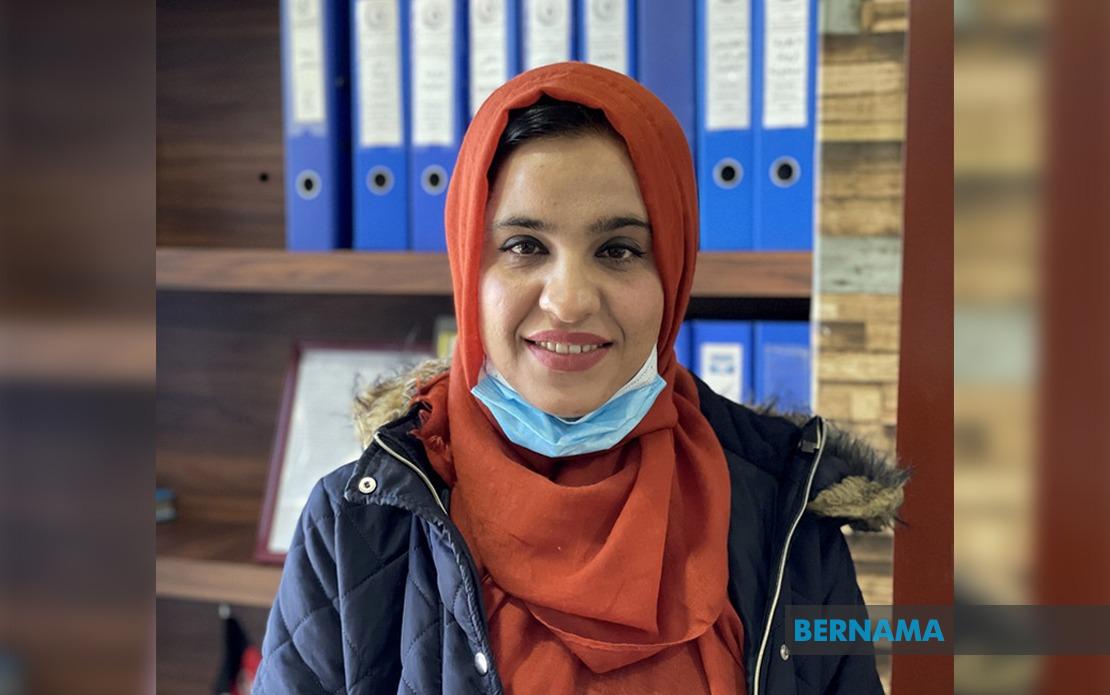
KABUL, 16 Mac -- Dr. Fawzia Iman, pakar obstetrik-ginekologi di Afghanistan. Beliau berkahwin dengan suaminya, penduduk tetap Afghan di Australia, tanpa berjumpa dengannya terlebih dahulu kerana diselubungi rasa takut amat hebat terhadap Taliban. --fotoBERNAMA (2022) HAKCIPTA TERPELIHARA
“Some nights when I am sleeping, I think that I decided too hastily, too desperately – that maybe it’s not okay, it’s not right (for me to marry someone without meeting him first),” she told Bernama. She had agreed to accept her husband’s proposal, after rebuffing his family previously, once the Taliban took over her country.
As worried as she might be over her marriage to a practical stranger, she is more worried about the Taliban. When the Taliban ousted the Ashraf Ghani government following the departure of US forces from Afghanistan in August last year, she was terrified.
Visions of her childhood came back, of being paralysed with fear when she saw Taliban fighters in Kabul beating women in the streets for wearing “nail polish on their toes”. She is scared their return to power signaled a return to the brutality, including killing civilians, destroying cultural monuments and prohibiting girls and women from going to school and taking up jobs.
Dr Fawzia is not alone in feeling that fear. Although more than six months have passed since the former terror group ousted the Ashraf Ghani government, many women Bernama talked to reported still feeling scared, depressed and uncertain of the future. The Taliban first ruled most of Afghanistan between 1996 and 2001, when the United States and its allies invaded Afghanistan after they refused to hand over Osama bin Laden, the former leader of Al Qaeda.
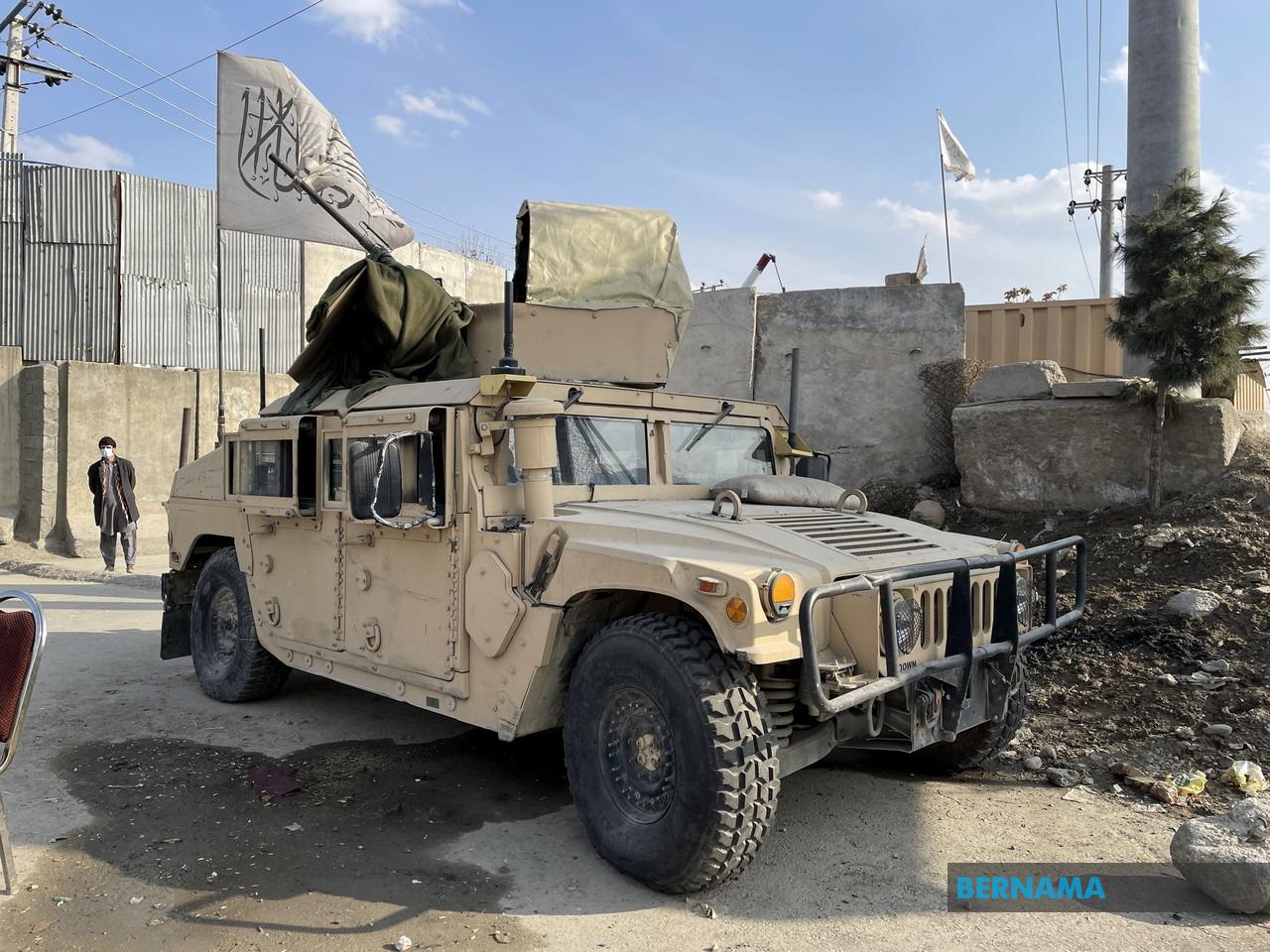
KABUL, 16 Mac -- Bendera Taliban berkibar megah di sebuah kenderaan Humvee, yang sebelum ini dimiliki tentera Amerika Syarikat di Afghanistan, di sebuah bangunan kerajaan berdekatan dengan Istana Darul Aman. Taliban mengambil alih Afghanistan selepas kerajaan pimpinan Ashraf Ghani tumbang, berikutan pengunduran tentera Amerika Syarikat pada Ogos 2021.
Although some of the women are too young to remember the group’s previous rule in Afghanistan, they are all only too aware of their activities in the interim, launching attacks against the US until the latter’s withdrawal in August last year.
TALIBAN 2.0
When the Taliban took over Afghanistan, it triggered US sanctions and much of the international funding earmarked for developing the country dried up. Most of the sanctions are reserved for a subset of the group – the Haqqani Network – blamed for the worst attacks on US forces in Afghanistan.
To assuage fears and garner acceptance by the international community, the Taliban promised to rule more moderately this time, including respecting women’s rights, ensuring security within their borders and providing amnesty to everyone who previously fought against them.
“Islam has made the rights of every single person, whether it’s a man, whether it’s a woman, a child … all those rights are very well defined in Islam and the government in Afghanistan will ensure all the rights of the people are respected,” said Abdul Qahar Balkhi, spokesman for the Afghan Foreign Ministry, without specifying exactly what those rights entail.

KABUL, 23 Feb -- Jurucakap Kementerian Luar Afghanistan Abdul Qahar Balkhi ketika berada di Lapangan Terbang Antarabangsa Hamid Karzai untuk menyambut penerbangan khas dari Malaysia, yang membawa hampir lima tan metrik bantuan untuk rakyat Afghanistan, termasuk pakaian musim sejuk, makanan bayi, selimut, susu tepung dan keperluan lain.
Abdul Qahar turut mengucapkan terima kasih kepada rakyat Malaysia dan kumpulan bantuan Malaysia atas sumbangan yang diberikan.
-- fotoBERNAMA (2022) HAK CIPTA TERPELIHARA
In Muslim countries, implementation of Islamic laws varies – from conservative Saudi Arabia, which segregates schools according to gender but now allows women to work freely with men and in male-dominated fields such as engineering, to moderate Malaysia with its co-educational schools and no government restrictions of movement or education on women.
Universities in Afghanistan recently reopened to admit both male and female students albeit in segregated classes. Male lecturers can still teach female students but female lecturers cannot teach male students.
In Kabul, the restrictions are not obvious with life under the Taliban seemingly going on as normal. The lucky few merchants and traders, who did not have to close their shops due to the economic crisis, ply their wares to passersby. Outside the Kabul Governor’s office, Afghans queue to apply for aid, with literate Afghans helping them to fill out forms. Taxi drivers yell at each other over customers. Traffic is bad, cars barely move as they approach a crossroads or, more commonly, a checkpoint with Taliban guards dressed in US military uniform.
Most of the women seen on the streets are beggars, some with their young children in tow. Elderly women tap on windows of cars caught in traffic, asking for money to tide them over, while teenage girls try to sell pens or tasbih (Islamic prayer beads). Every once in a while, smartly-dressed young women would step out, wearing a loose scarf to cover their hair and a mid-length dress with leggings to satisfy the aurat (modesty) requirements.
But such freedoms, anathema to the previous Taliban government, may be too much for this iteration as well. There are signs that leadership promises are not filtering to the lower echelons of the group. Reprisals have occurred against those working for the previous government.
The Taliban has also introduced more restrictions against women, recently announcing that women would not be allowed to travel out of the country to study without a male relative accompanying them. In Kabul University, there are notices reminding women to cover themselves in black Arabic dress and niqab, which covers a woman from head to toe with an opening around the eyes.
While these restrictions may not seem too unusual, akin to Saudi Arabia, the real curbs are more insidious as evinced by the difficulties Kabul-based NoorTV broadcast journalist Hadia Ziaei faces.
“When we go to some news conferences, they don’t allow us female journalists to talk to the ministers. It’s hard for me because as a reporter, it’s my duty to talk to them but they don’t accept (my reasoning). They just say, ‘your cameraman (can) come in and talk to me and ask your questions, but I don’t allow you to come and talk to me’,” she told Bernama.
She is now the only female broadcast journalist with her outfit, along with one female presenter and a social media manager. The other four women who used to work there fled when the Taliban took over.
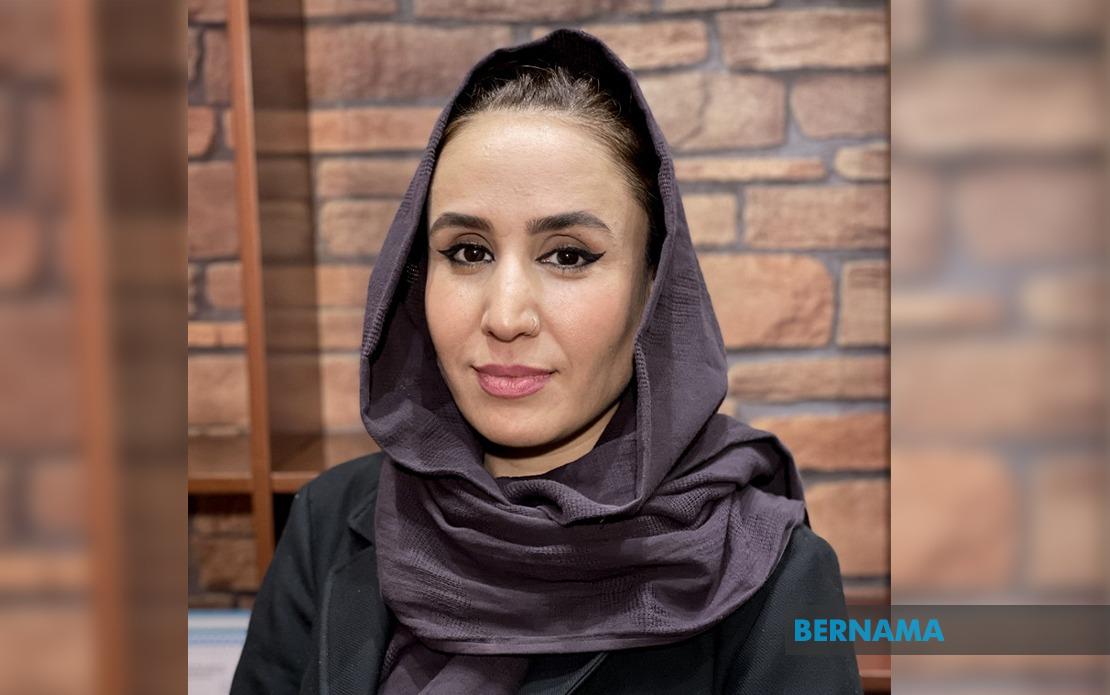
KABUL, 16 Mac -- Samira Noori, ketua pendidikan di pertubuhan bukan kerajaan Citizens' Organisation for Advocacy and Resilience di Afghanistan. --fotoBERNAMA (2022) HAKCIPTA TERPELIHARA
Girls’ education activist Samira Noori is not surprised by the unofficial restrictions. She said instead of forbidding women from participating in public life, the Taliban’s modus operandi now is to make life and work for women hostile for them by creating invisible hurdles.
“Many women end up feeling discouraged and leave. And then they (the Taliban) can say, ‘see we just request them to come and work, and they leave us’,” she said.
She added this shows the Taliban got smart, “(learning) what the international community wants and how to build trust with the international community. After (recognition), they will show their real face.”
THE TRUE FACE
It is a familiar theme among women in Kabul, which stands as a cosmopolitan and somewhat liberal centre in the middle of a deeply traditional and conservative country. All have heard the promises the Taliban 2.0 made when they took over, and while some are willing to give them the benefit of the doubt, all are expecting the other shoe to drop.
“After our offices reopened, when we sat with one of them and talked with them, I see maybe they’ve changed. But we don’t know the reality of them until now. If they changed, truly, we accept them. (But) all of us say we don’t know the real face of (the Taliban),” said Hadia.
On one hand, there is the Taliban who does nothing as young women in mid-length dresses, heels and make-up walk by them. On the other hand, there is the Taliban who threatened to kill Kabul University literature professor Mahmouda Taqwa if he caught her without a hijab or burqa.
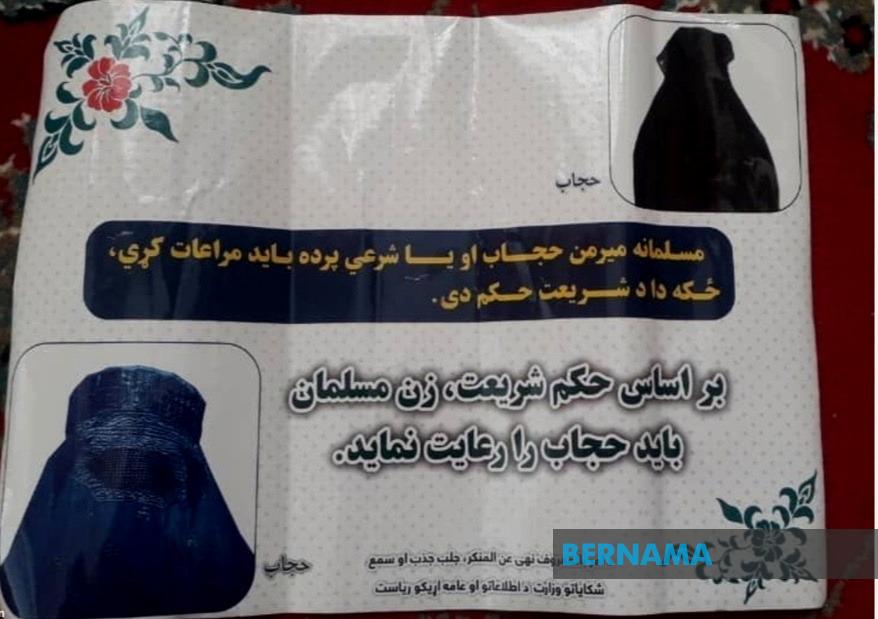
KABUL, 16 Mac -- Poster yang mengingatkan wanita Muslim untuk memakai hijab atau burqa mengikut syariat Islam ditemui di Universiti Kabul, dipercayai milik Kementerian Penerangan dan Hal Ehwal Awam Afghanistan.
--fotoBERNAMA (2022) HAKCIPTA TERPELIHARA
Mahmouda told Bernama the Taliban member who threatened her was her cousin-in-law. Being related through marriage, she cannot fully escape his presence.
“He always has a gun on him. I am very afraid he will shoot me. Because of that, I don’t like to meet him but he comes to my home,” she said, adding that she runs to her sister’s house each time he comes over.
The international community, including Malaysia, has made basic human rights and women’s rights as a condition for recognising the Taliban government. In trying to forge relations with Afghanistan, hope rather than concrete evidence seems to be influencing policy, however.
Many have noted that the current Taliban government does not seem to be as heavy-handed as before, hoping that they will actually become more moderate as time goes on. Wisma Putra’s special advisor on Afghanistan Datuk Ahmad Azam Ab Rahman has asked the international community to give the Taliban a chance, saying they were still learning how to govern.
MyCare trustee Associate Prof Dr Mohd Zin Kandar said he thought the Taliban would become more moderate, using the example of how women were allowed to dress at the Kabul University campus.
“For me, I’m quite optimistic, quite positive that there will be some flexibility,” he said.
Geostrategist Azmi Hassan said Malaysia should not isolate Afghanistan but instead work to help them to improve and provide basic human and women’s rights.
“I think the people of Afghanistan want more freedom and this includes women’s rights. I think we should not leave them alone to fight for their freedom. So at least we can help them by withholding the recognition, (by putting) pressure on the Afghanistan government,” said Azmi, who is also the senior fellow at Nusantara Academy.
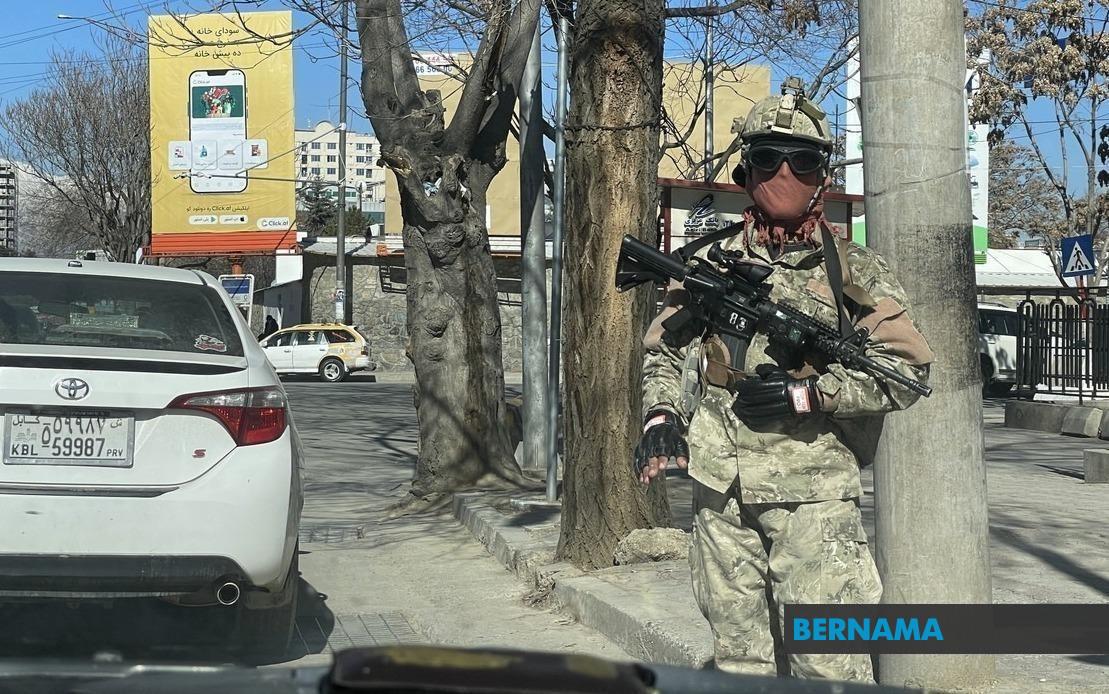
KABUL (Afghanistan), Feb 26 -- Tentera Taliban lengkap beruniform AS-NATO mengawal pusat pemeriksaan di Kabul.
Taliban mengambil alih tampuk kerajan tahun lalu setelah pasukan tentera AS dan NATO berundur secara tergesa-gesa dan kerajaan pimpinan Ashraf Ghani tumbang. Penyaluran dana yang diikrarkan untuk membina semula negara itu dihentikan dan Afghanistan kini dalam krisis ekonomi dan perbankan.
--fotoBERNAMA (2022) HAK CIPTA TERPELIHARA
But for many women, they cannot take the risk of waiting any longer, worried the Taliban might backslide into more restrictions versus moderation. Several women told Bernama they were prepared to leave Afghanistan for good.
While acknowledging that the current Taliban regime has not been as brutal as the previous one, Dr Fawzia said she would have to leave to ensure her safety and her eventual children’s future.
“I think I don’t have a good future here. From my childhood, when I was four or five (years old) and the Taliban came, I have a very bad idea of them (from that time). This is a little better. But still, I have bad memories of them. That’s why I decided suddenly to marry and leave,” she added.
(Note: Bernama journalist Nina Muslim was in Afghanistan from Feb 23 to March 3, 2022, to do in-depth reporting of the situation on the ground six months after the departure of US forces and the Taliban taking control of the government. She had accompanied Malaysian NGOs on their relief efforts, coordinated by the Global Peace Mission Malaysia.)
Edited by Rema Nambiar
-- BERNAMA
Penulis
Nina Muslim
16 March 2022